Introduction: The Game Is Changing – Literally
Over the last few decades, gaming has evolved from simple 8-bit experiences into immersive, lifelike worlds that rival Hollywood blockbusters. But the most revolutionary leap isn’t just in graphics or sound – it’s in intelligence. Artificial Intelligence (AI) is quietly becoming the brain behind today’s most dynamic gaming experiences.
In the early 2000s, AI in games meant predictable enemy behavior or basic pathfinding algorithms. Fast forward to 2025, and the story is dramatically different. Today’s AI doesn’t just respond – it learns. It adapts to player styles, creates unpredictable challenges, and even helps developers build massive, living worlds faster than ever.
From blockbuster PS5 games to indie masterpieces, AI is driving an era where virtual worlds feel alive and players are part of something truly intelligent. But how did we get here – and what’s next for the future of gaming technology? Let’s dive deep into how AI is reshaping everything we know about gaming.
The Evolution of AI in Gaming
Artificial Intelligence has always been part of gaming, but its role has drastically expanded over time. What started as a way to simulate enemies has turned into an entire ecosystem that powers everything from animation to storytelling.
A Brief Timeline of AI in Gaming
| Era | Example Games | AI Capability | Description |
|---|---|---|---|
| 1980s–1990s | Pac-Man, Mario | Basic Logic | Enemies followed pre-set patterns |
| 2000s | Halo, GTA | Rule-Based AI | Smarter opponents, adaptive difficulty |
| 2010s | Skyrim, The Sims | Behavioral AI | Characters exhibited lifelike reactions |
| 2020s–2025 | Horizon Forbidden West, God of War: Ragnarök (PS5) | Machine Learning & Neural Networks | Real-time adaptation, realistic NPC behavior, AI-assisted design |
From scripted movement to dynamic decision-making, AI’s journey in gaming mirrors the rise of computing power and data science.
How AI Makes Gaming Smarter
AI brings several technological advancements that have transformed gaming beyond traditional programming logic. Here’s how:
1. Adaptive Gameplay
AI analyzes how you play – whether you’re stealthy or aggressive — and adapts the experience accordingly. For instance, in PS5 games like Returnal or Demon’s Souls, AI-driven systems dynamically tweak enemy difficulty and resource availability.
Benefits:
- Keeps challenges engaging for all skill levels
- Prevents player frustration or boredom
- Encourages replayability with unique scenarios
2. Smarter Non-Player Characters (NPCs)
Gone are the days of robotic, repetitive NPCs. Modern AI enables lifelike NPCs that learn and evolve.
Example:
In Red Dead Redemption 2, NPCs remember player actions, react emotionally, and influence story outcomes – all thanks to intelligent AI algorithms.
What This Means:
- NPCs can form relationships with players
- Dynamic dialogue and storytelling
- Greater immersion and realism
3. Procedural World Generation
AI isn’t just making characters smarter — it’s creating entire worlds. Procedural generation uses algorithms to automatically design maps, landscapes, and missions.
Used in games like:
- No Man’s Sky – AI generated over 18 quintillion planets
- Minecraft – Terrain generation uses procedural algorithms
- Horizon Forbidden West (PS5) – AI assists in building detailed environments
This allows developers to build massive, diverse worlds without manually crafting every detail.
4. Realistic Physics and Animation
AI-driven physics engines make player movements and environmental interactions far more realistic. Motion prediction models powered by machine learning simulate natural walking, fighting, or driving patterns.
For instance, AI animation blending in PS5 titles like Spider-Man 2 creates seamless movement transitions and lifelike combat responses.
5. AI-Assisted Game Design
Game studios now rely on AI to automate testing, detect bugs, and even suggest design improvements. AI-powered tools like Unity ML-Agents and NVIDIA Omniverse assist developers in creating next-gen experiences faster.
This not only cuts down development time but also boosts innovation, allowing creative teams to focus on storytelling and art direction.
AI in PS5 Games: A Next-Level Experience
The PlayStation 5 is a prime example of how AI and next-gen hardware combine to push boundaries. With its custom SSD, GPU acceleration, and advanced neural processing capabilities, AI integration feels more seamless than ever.
Examples of AI in PS5 Games
- Horizon Forbidden West: Enemies use adaptive behavior based on player strategies.
- Ratchet & Clank: Rift Apart: AI optimizes world streaming in real-time for near-instant transitions.
- Gran Turismo 7: AI opponents, powered by Sony’s Sophy Project, race like human players with strategy and personality.
AI is not just a background feature anymore – it’s a co-pilot for both developers and gamers, driving richer, more personal gameplay.
Pros and Cons of AI in Gaming
| Pros | Cons |
|---|---|
| More realistic and immersive gameplay | Increased development costs |
| Personalized player experiences | Ethical concerns (AI replacing human creativity) |
| Faster game production through automation | Potential unpredictability or bugs in learning AI |
| Smarter NPCs and world behavior | Requires powerful hardware like PS5 or gaming PCs |
While AI unlocks creativity and realism, it also raises questions about balance – between automation and artistry, and between machine learning and human imagination.
How AI Enhances Player Engagement
AI doesn’t just make games look good; it keeps players emotionally connected.
Here’s how:
- Dynamic Storytelling: Storylines change based on your choices and actions.
- Predictive Personalization: AI suggests levels, gear, or side quests based on your style.
- Emotional Intelligence: Characters respond naturally to tone or in-game behavior.
- Smarter Matchmaking: AI-driven matchmaking in multiplayer ensures fair and balanced gameplay.
These innovations make gaming feel personal – a journey shaped uniquely for every player.
AI and the Future of Game Development
The future of gaming is procedural, adaptive, and player-driven. Game studios are already experimenting with AI tools that can write dialogue, generate environments, and even compose music.
Upcoming Trends
- AI Voice Synthesis: NPCs can speak naturally without pre-recorded lines.
- Emotion-Responsive Gameplay: Games adapt based on player emotion via biometrics.
- Cloud-AI Integration: Streaming AI-driven games directly without heavy local hardware.
- AI Game Testers: Automated systems that test thousands of gameplay scenarios daily.
AI will also merge with Virtual Reality (VR) and Augmented Reality (AR) to create hyper-realistic experiences where players interact with intelligent virtual beings in lifelike worlds.
Challenges and Ethical Considerations
Despite the promise, AI in gaming also faces hurdles:
- Data Privacy: Games using player behavior data must ensure ethical handling.
- AI Bias: Poorly trained models can create unfair or repetitive experiences.
- Job Impact: Automation might reduce certain creative roles in studios.
- Balance Issues: Overly adaptive AI can make games frustrating or too unpredictable.
Developers must strike a balance between intelligent automation and maintaining the heart of gaming – fun, creativity, and fairness.
Conclusion: The Intelligent Future of Play
Artificial Intelligence has become the beating heart of next-gen gaming. It’s transforming static worlds into living ecosystems and turning passive characters into thoughtful companions or rivals. Whether it’s a PS5 title pushing the limits of realism or a mobile game using predictive AI for smarter gameplay, the fusion of intelligence and interactivity defines the future.
The next time you power on your console, remember – you’re not just playing a game. You’re interacting with an evolving digital intelligence, one that learns, adapts, and grows with you.
The game isn’t just smarter; it’s alive. And the future of gaming has only just begun.
FAQs: AI in Gaming Technology
Q1: How is AI used in modern PS5 games?
Ans: AI powers smarter NPCs, dynamic difficulty adjustments, and lifelike animations in PS5 games. Titles like Gran Turismo 7 and Horizon Forbidden West use AI for realism and adaptive gameplay.
Q2: Can AI make games harder or easier automatically?
Ans: Yes. AI-driven systems monitor player performance and adjust difficulty in real time, ensuring balanced gameplay for beginners and veterans alike.
Q3: Are developers using AI to create entire game worlds?
Ans: Absolutely. Procedural generation powered by AI allows for massive, endlessly diverse worlds — as seen in No Man’s Sky or Minecraft.
Q4: Will AI replace human game developers?
Ans: Not entirely. AI assists with design, testing, and automation, but human creativity remains crucial for storytelling, art, and emotional connection.
Q5: How does AI affect multiplayer games?
Ans: AI helps with matchmaking, anti-cheat detection, and creating balanced teams — improving the overall competitive experience.
Q6: What’s the next big step for AI in gaming?
Ans: Expect emotion-aware AI, real-time story generation, and even self-evolving worlds that change independently of player actions.


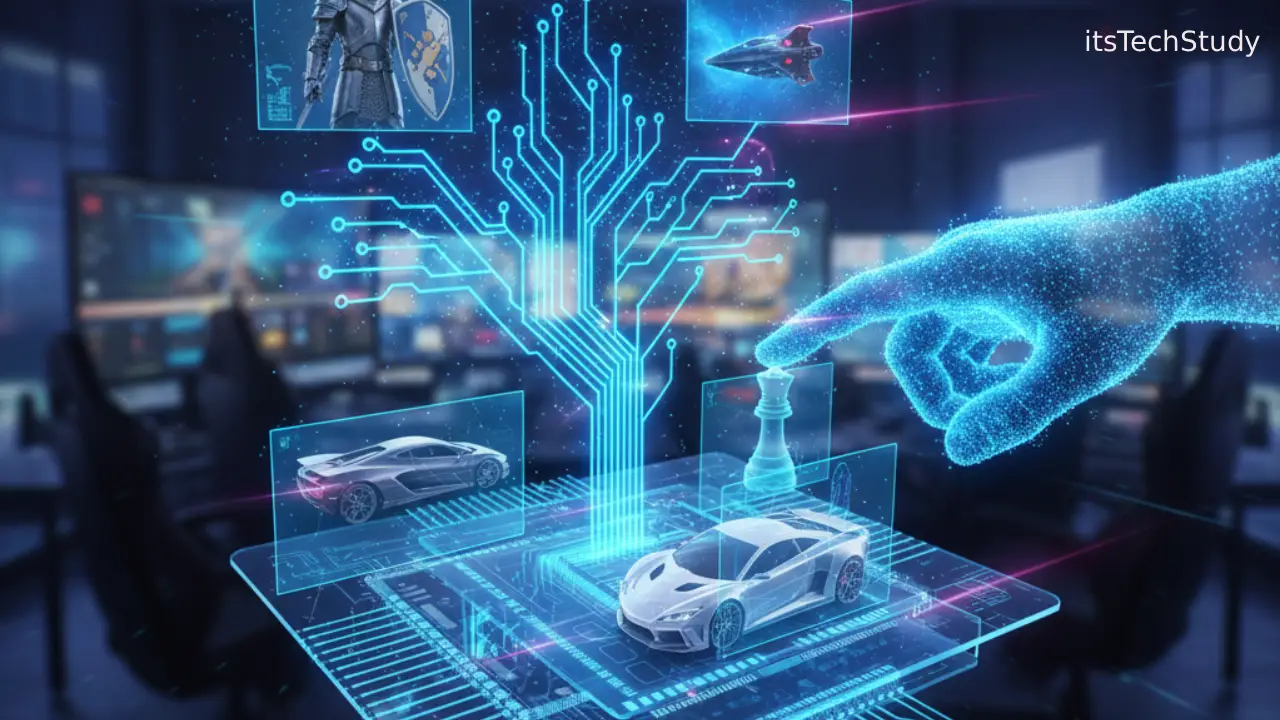

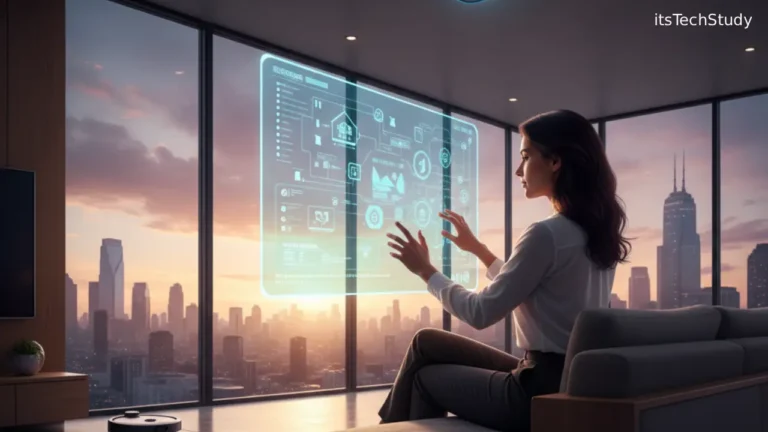

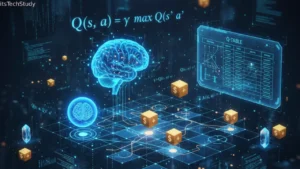
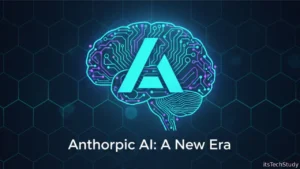
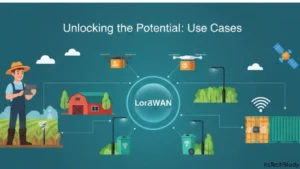
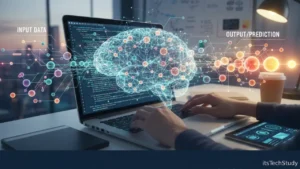
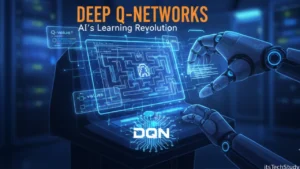
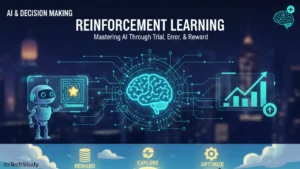
No Comments Yet
Be the first to share your thoughts.
Leave a Comment